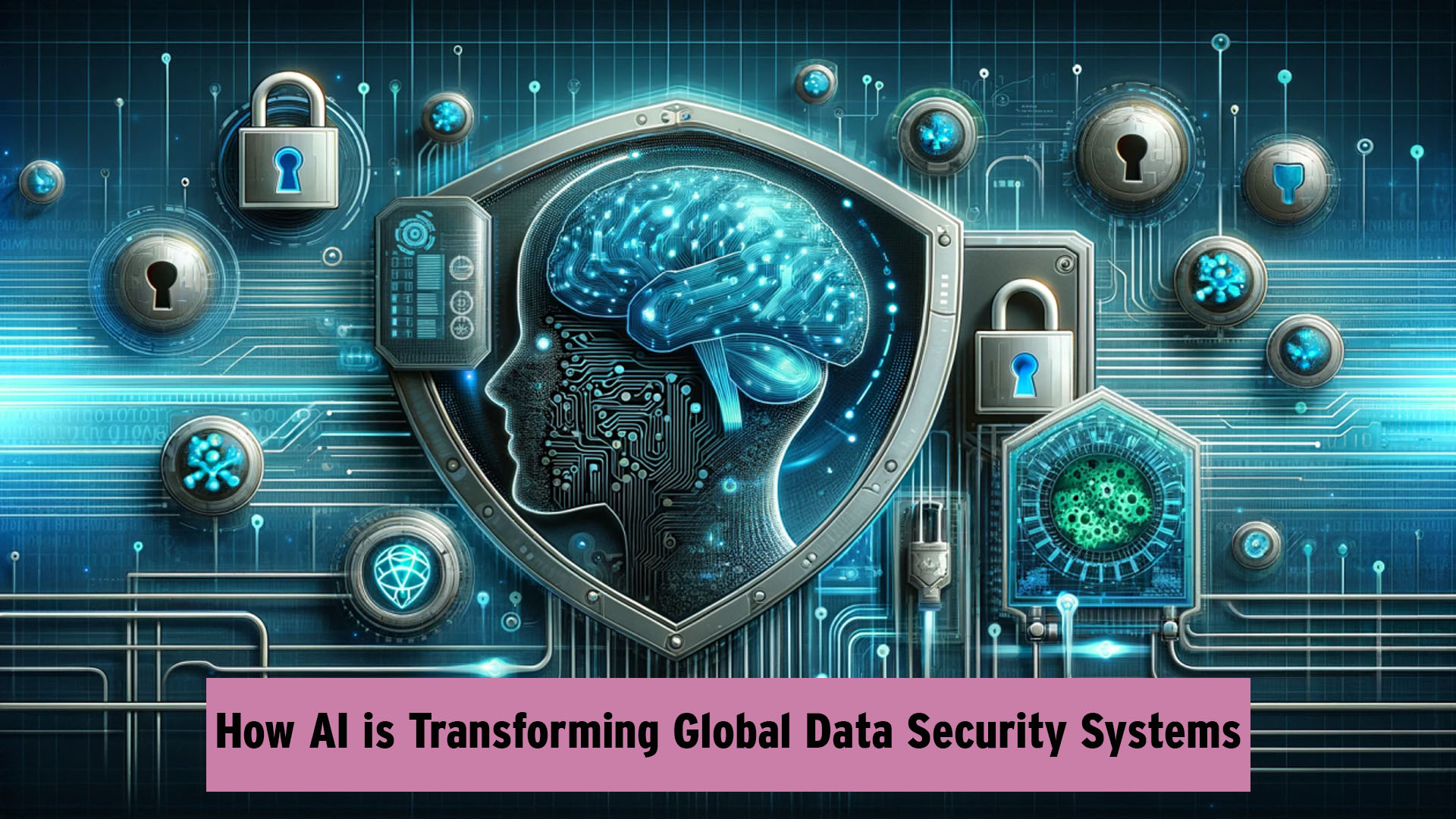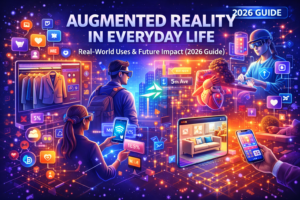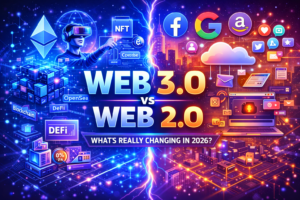AI
advanced threat detection, AI algorithms, AI and ethics, AI cyber risks, AI cybersecurity solutions, AI data protection, AI in cloud computing, AI in cybersecurity, AI in fraud detection, AI in IoT security, AI privacy concerns, AI security tools, AI surveillance, AI-driven security, artificial intelligence, biometric authentication, cloud security, cyber defense, cybersecurity challenges, cybersecurity trends, data governance, data security, future of cybersecurity, global cybersecurity, global data protection, identity management, international data security, machine learning security, predictive security, threat detection
Worker
0 Comments
Artificial Intelligence Impact on Global Data Security Today
Introduction
From personalized proposals to independent vehicles, AI is revolutionizing the way we live and work. One of its most basic applications lies in information security, where organizations, governments, and people confront uncommon challenges. With cyberattacks getting to be more modern, AI offers both openings and dangers for worldwide information assurance. Understanding its double part is basic for building a secure computerized future.
The Rising Significance of Information Security
In the present day world, information has ended up the unused oil—fueling businesses, forming economies, and affecting choices. With billions of gadgets associated through the Web of Things (IoT), tremendous sums of delicate data are being put away and transmitted over systems. This has made cybersecurity a best need for undertakings and governments alike. Be that as it may, the developing scale and complexity of assaults request progressed arrangements past conventional firewalls and antivirus frameworks, clearing the way for AI-driven security strategies.
AI as a Game-Changer in Cybersecurity
Artificial Intelligence is reshaping cybersecurity by mechanizing danger location, analyzing tremendous datasets, and anticipating potential vulnerabilities sometime recently they can be misused. Not at all like customary strategies that depend on settled rules, AI frameworks learn and adjust from advancing designs. Machine learning calculations can recognize peculiarities in genuine time, making a difference organizations distinguish phishing, ransomware, and information breaches speedier than human groups. This proactive approach altogether fortifies worldwide information security frameworks.
AI-Powered Risk Location Systems
One of AI’s most effective commitments to cybersecurity lies in cleverly danger discovery. AI-driven stages persistently screen arrange activity, client behavior, and framework logs to recognize bizarre exercises. For occasion, an AI calculation can right away hail suspicious login endeavors from abnormal areas or times. Furthermore, Common Dialect Handling (NLP) makes a difference analyze phishing emails and pernicious content designs that people might neglect. By learning from past episodes, AI devices advance to expect unused assault strategies.
Predictive Security and Chance Mitigation
Traditional cybersecurity frequently centers on reacting to assaults after they happen, but AI presents prescient security. By analyzing verifiable information and recognizing rising patterns, AI frameworks can figure potential dangers some time recently they materialize. For case, prescient models can caution a money related institution of likely extortion endeavors or identify helpless endpoints in a healthcare framework. This prescient capability empowers organizations to receive preventive measures, diminishing the probability of disastrous breaches.
The Part of AI in Personality and Get to Management
Identity and get to administration (IAM) is imperative in defending touchy information. AI improves IAM by giving biometric verification, versatile get to control, and ceaseless observing of client behavior. Instep of depending exclusively on passwords, AI-powered frameworks utilize facial acknowledgment, unique mark looks, and voice verification to reinforce security. Additionally, versatile get to control alters consents in genuine time based on chance variables, guaranteeing that as it were authorized people can get to basic information.
AI in Cloud Security
With cloud computing getting to be the spine of worldwide trade operations, securing cloud situations has gotten to be progressively complex. AI plays a vital part in observing cloud foundation, identifying unauthorized get to, and guaranteeing compliance with worldwide information security controls. Cloud security devices fueled by AI give robotized reactions to dangers, minimizing downtime and information misfortune. This is especially critical for multinational organizations taking care of delicate information over borders.
Challenges and Dangers of AI in Information Security
Cybercriminals are similarly leveraging AI to create progressed assault strategies, counting deepfakes, mechanized malware, and shrewdly phishing campaigns. Besides, AI models themselves can be focused on through ill-disposed assaults, where programmers control information to trap calculations. Another concern is over-reliance on AI, which might lead organizations to overlook human oversight, taking off dazzle spots in their security posture.
Ethical and Security Concerns
AI’s part in worldwide information security raises basic moral and protection questions. The collection and examination of gigantic datasets for AI preparing frequently include individual and touchy data. Without strict information administration, this may lead to infringement of security rights and abuse of individual information. Also, the utilize of AI reconnaissance advances in a few locales sparkles wrangles about almost adjusting national security with person flexibilities. Policymakers must make controls that guarantee capable AI sending in information security.
International Collaboration and Arrangement Frameworks
Data security is no longer restricted inside national borders—it is a worldwide issue requiring worldwide collaboration. Governments and organizations must set up systems for AI-driven cybersecurity benchmarks, data sharing, and facilitated reactions to large-scale assaults. Universal controls such as the Common Information Security Direction (GDPR) set benchmarks, but more comprehensive worldwide understandings are required. AI can offer assistance implement compliance by checking exercises over locales, but its administration must be carefully outlined to maintain a strategic distance from misuse.
Conclusion
Artificial Intelligence is both an effective weapon and a potential helplessness in the fight for worldwide information security. It upgrades danger discovery, prescient analytics, and personality administration, whereas too presenting unused challenges such as AI-driven cybercrime and moral problems. To tackle its benefits, organizations and governments must receive an adjusted approach—leveraging AI’s qualities whereas guaranteeing straightforwardness, responsibility, and human oversight. Eventually, the future of worldwide information security will depend on how viably humankind coordinating AI as a trusted partner or maybe than a dazzle dependence.
Share this content:














Post Comment